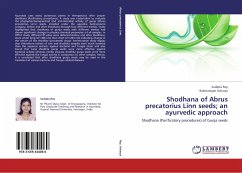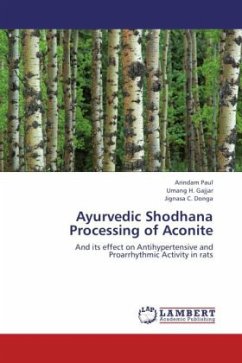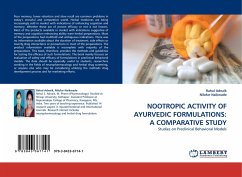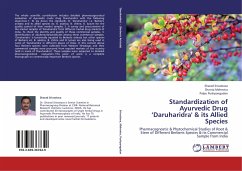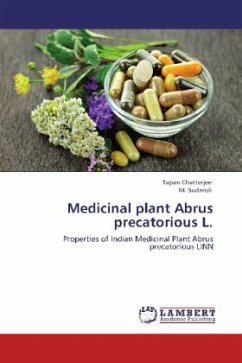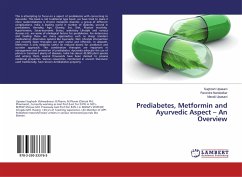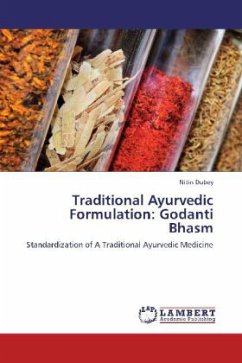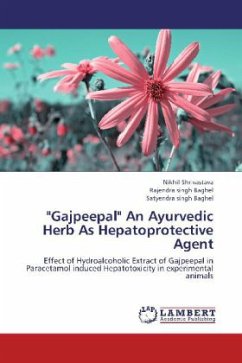Ayurveda uses many poisonous plants in therapeutics after proper shodhana (Purificatory procedures). A study was undertaken to evaluate the phytopharmacognostical and anti-microbial activity of gunja (Abrus precatorius Linn.) seeds, included under the upavisha (semi-poison) category, before and after Shodhana through four different medias. Study highlighted that shodhana of gunja seeds with different medias had shown significant changes in physico-chemical parameters of all samples. In HPTLC study, different Rf value were detected before and after shodhana, more under long UV (366 nm) than short UV (254 nm) indicating change in the nature of the shodhita (processed) drugs. Antimicrobial study display that chloroform extract of raw and shodhita samples were much sensitive than the aqueous extracts against bacterial and fungal strain and also found that kanji shodhita gunja seeds were more effective against bacterial activity whereas nimbu swarasa shodhita gunja seeds were more effective against the fungal activity in comparison to other samples. Hence, it is concluded that after shodhana gunja seeds may be used in the treatment of various bacteria and fungus related diseases.
Bitte wählen Sie Ihr Anliegen aus.
Rechnungen
Retourenschein anfordern
Bestellstatus
Storno

